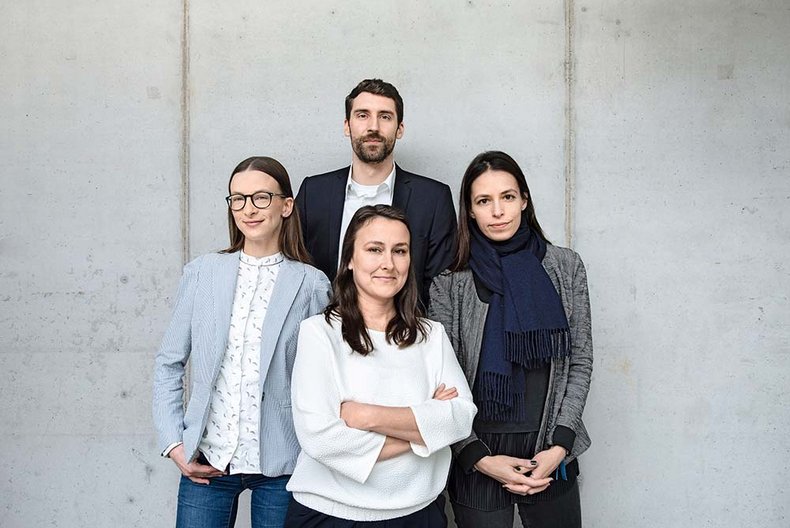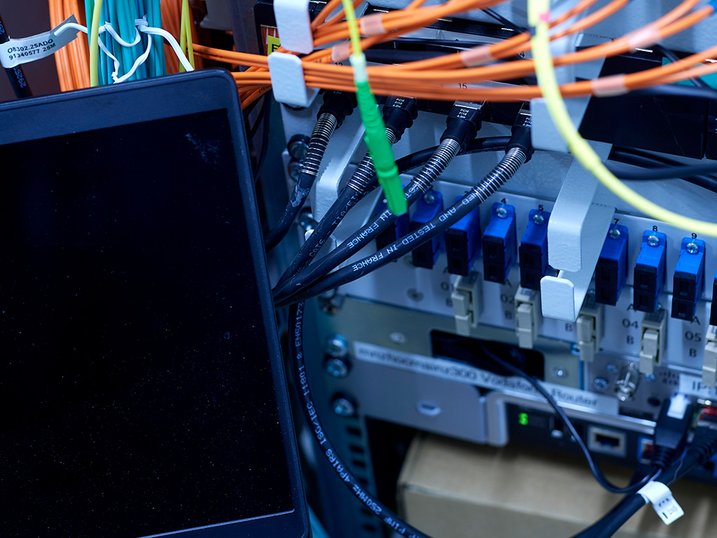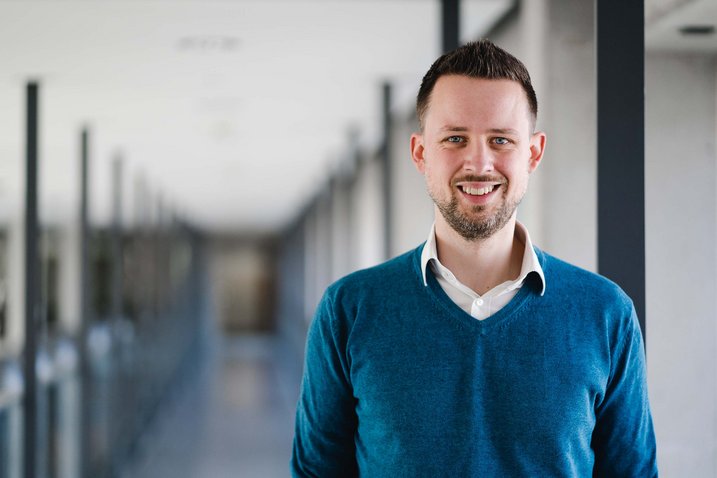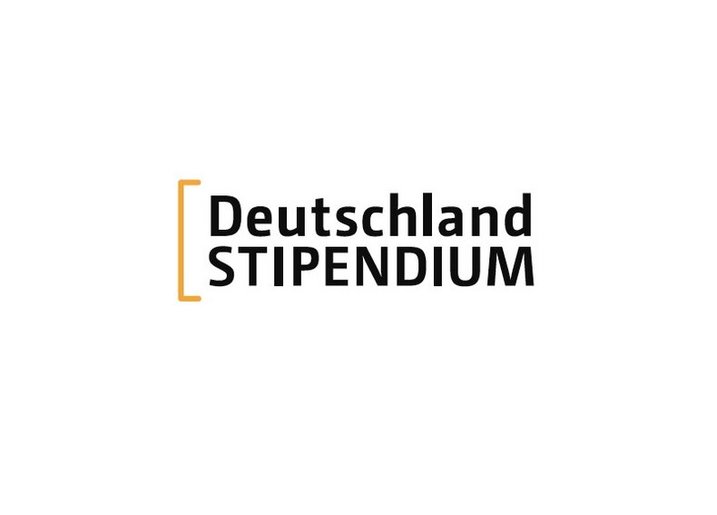Artificial intelligence, virtual & augmented reality, smart industry, robotics and digital reputation - innovative, intelligent solutions are being developed for these topics at Mainz University of Applied Sciences in pilot projects and cooperative processes with partners from Rheinhessen and the Vorderpfalz region. These activities are taking place as part of the cross-university transfer alliance EMPOWER – Kooperation leben und Innovation gestalten (EMPOWER – Living Cooperation and Shaping Innovation), which was launched at the beginning of the year and is centrally coordinated by Mainz University of Applied Sciences.
The interdisciplinary joint project involving Mainz University of Applied Sciences, Mainz Catholic University of Applied Sciences, Bingen Technical University of Applied Sciences, Worms University of Applied Sciences, Ludwigshafen University of Business and Society, and Johannes Gutenberg University is part of the second round of funding under the federal-state Innovative Hochschule initiative and will run for five years. On March 21, a major kick-off event was held in Mannheim to network the project participants from the first and second rounds of funding.
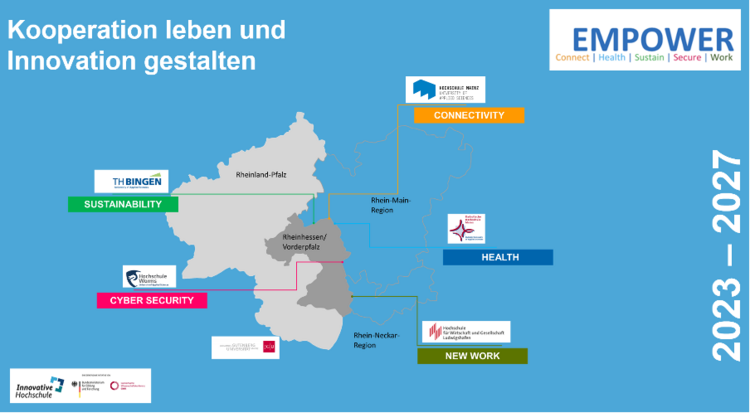
Overall coordination of the new transfer alliance EMPOWER at Mainz University of Applied Sciences
“EMPOWER serves to strategically strengthen a research-based transfer of ideas, knowledge, and technology between the participating universities and external organizations from society, business, and culture. EMPOWER focuses on the societal megatrend topics of connectivity, health, sustainability, cyber security, and new work,” says Prof. Dr. Anett Mehler-Bicher, Vice President for Research and Transfer at Mainz University of Applied Sciences, describing the objectives of the project, which she applied for and obtained funding for. These five megatrends offer numerous interdisciplinary, intersecting topics that not only enable the networking of the transfer activities of the universities in the alliance, they also require it.
Connectivity is more encompassing than digitalization
Mainz University of Applied Sciences is in charge of the Connectivity megatrend in the transfer alliance. “Connectivity is more encompassing than digitalization and describes the principle of networking based on digital infrastructures as a basic pattern of social change in the 21st century. Networked communication and information technologies are fundamentally changing life, work, and business, leading to numerous innovations. These are reflected in new lifestyles, behavior patterns, and business models,” notes Prof. Dr. Mehler-Bicher, explaining the field of inquiry.
Mainz is home to the overall project management and central coordination across the universities, under the responsibility of Dr. Susanne Weiß-Wittstadt, supported by Sabrina M'Barek in the Project Office. The EMPOWER team in Mainz also includes Julia Taibi-Voigts as Connectivity Transfer Manager, who coordinates all pilot projects on this megatrend, and Bastian Eine, who is responsible for knowledge management within the alliance project, meaning the development of a knowledge and competence platform for internal and external use of the forms of transfer being created within the alliance.
Mainz-based New Venture Studio advises skilled trades on further developing business models for digital manufacturing
Innovative forms of (knowledge) transfer, such as the New Venture Studio, the Innovation Lab, and the Competence Center, make it possible to consolidate knowledge transfer with internal and external partners and create effective communication channels. The three transfer platforms are closely interlinked and are being developed in different pilot projects at all participating universities. In the New Venture Studio, based solely in Mainz, companies, especially skilled trades companies, are advised and supported with regard to possibilities to further develop their business models for digital manufacturing. New approaches to digital manufacturing are developed in collaboration with chambers of skilled crafts and companiies in the skilled trades in the Innovation Lab. On this basis, the Competence Center will draft corresponding qualification measures for skilled trade companies and derive training measures for instructors at vocational schools.
